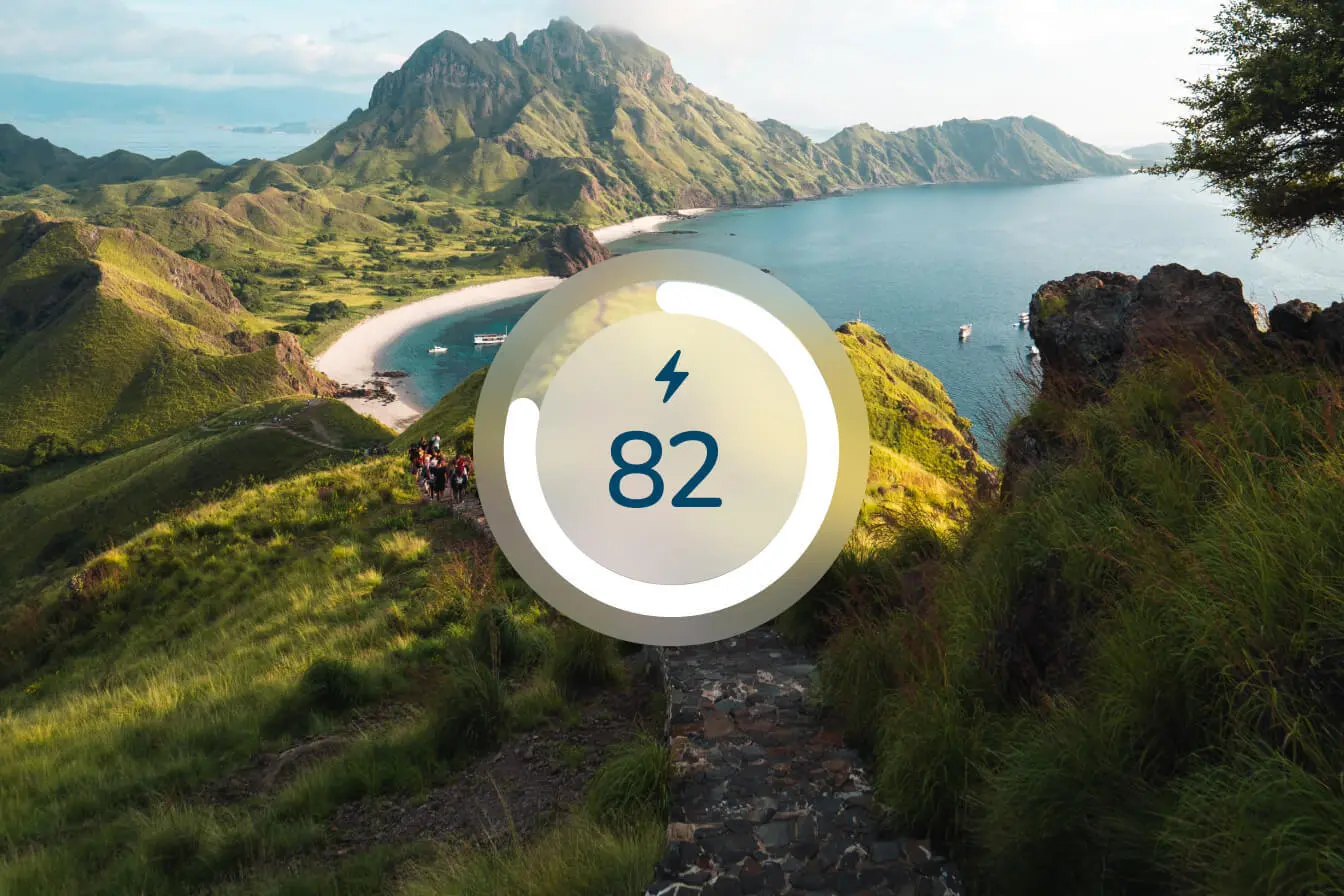Recovery Score: Train Smarter, Not Harder
Recovery assesses how ready your body is to perform and take on physical exertion. By focusing on recovery, you can make smarter decisions about your workouts, reduce the risk of overtraining, and make new habits easier to sustain.

Each morning, Sonar calculates your Recovery score on a scale from 0 to 100%, with higher scores indicating better recovery as seen below:

Good (80-100%): You’re well recovered and your body is signaling that it’s ready to perform. You can handle more demanding activity with a lower risk of injury and higher potential for peak performance. It’s an ideal time to push your physical limits.
Fair (60-79%): Your body can handle some strain, but aim for balanced effort and avoid pushing to extremes. This is an ideal range for moderate-intensity workouts or activities that support fitness maintenance.
Poor (0-59%): This range suggests your body needs more time to recharge. Even if you had enough sleep, factors such as stress or an unbalanced diet can lower your readiness. On days like these, focus on deliberate recovery strategies like relaxation techniques, better nutrition, and prioritizing sleep to help your body bounce back.
Just as important as the number itself are the trends over time. If you notice a consistent decline in your Recovery Score, it could signal chronic overtraining, insufficient rest, or lifestyle factors that need reevaluation.
How is your Recovery Score calculated?
Sonar’s Recovery algorithm analyzes your vital signs during sleep, and compares them to your personal baselines and trends. Your sleep provides a consistent, undisturbed window into your body’s physiological state, free from the fluctuations caused by daily stressors, physical movement, and other external influences. Recovery is shaped by a variety of factors, including:
- Heart Rate Variability (HRV): This is the variation in time between each heartbeat. A higher HRV suggests your autonomic nervous system is adaptable and healthy, which is crucial for optimal recovery.
- Resting Heart Rate (RHR): A lower RHR typically indicates your heart doesn’t have to work as hard at rest. When your RHR spikes, it may signal that your body is under stress — whether from tough workouts, lack of sleep, or everyday life factors.
- Sleep Score: Good sleep is the foundation of recovery, allowing your body and mind time to restore and repair. Sonar tracks how much sleep you get relative to what you need. Deep, uninterrupted sleep contributes significantly to boosting your Recovery Score.
- Respiratory Rate: A stable, lower respiratory rate usually correlates with a calmer state, hinting your body is better recovered. Although it doesn’t fluctuate much night to night, any unusual jumps could be a sign of stress or illness.
- Body, Wrist, or Skin Temperature: Temperature readings can reveal how well your body is managing thermoregulation, and can signal whether you’re fighting an infection or illness. Steady, optimal temperatures are a strong indicator of good recovery.
- Blood Oxygen (SpO2): Your oxygen saturation impacts many physiological processes essential for muscle repair and overall health. Maintaining a healthy SpO2 ensures your body gets the oxygen it needs, directly supporting recovery.
The relationship between Strain and Recovery
Your recovery each morning determines your ability to handle strain for the day — the better your recovery, the more strain you can take on. To support this, Sonar provides a recommended strain target based on your daily recovery level. Staying within this target allows you to maintain or build fitness while ensuring your body has sufficient time to recover. Exceeding the target may result in “overreaching,” while staying below it keeps you in a “restorative” state.
By increasing the duration and intensity of activity when well-recovered and scaling back when recovery is low, you can reduce your risk of injury, optimize performance, and train smarter, not harder.
How to improve your recovery
Beyond getting good quality sleep, here are a few simple and effective ways to boost your recovery:
- Hydrate consistently to support muscle repair and circulation.
- Prioritize balanced nutrition with proteins, healthy fats, and complex carbs.
- Avoid caffeine and other stimulants late in the day to improve sleep.
- Incorporate mindfulness practices like meditation or breathwork to reduce stress.
- Stick to a consistent sleep schedule to align with your circadian rhythm.
What limits your recovery
Several factors can negatively impact your recovery, including poor sleep, illness, or high strain on the previous day. Other factors to watch out for include:
- Chronic stress
- Alcohol consumption
- Inconsistent sleep schedule
- Prolonged screen time before bed
- Inadequate nutrition or insufficient fueling
- Time zones changes and high altitudes
Balancing data with self-awareness
While Sonar’s Recovery Score is a powerful tool for tracking your body’s readiness to perform, it’s just one piece of the puzzle. It’s not about striving for a perfect score every day, but rather about identifying opportunities for growth and improvement. By listening to your body, trusting your instincts, and balancing the data with your own experience, you can develop healthier habits and create a sustainable routine that supports both your immediate goals and long-term health.
About Sonar
Sonar unifies activity, sleep and nutrition data from all of your favorite wearables and health apps, transforming it into deeply personalized guidance for boosting your daily performance, healthspan and longevity. Whether you’re a seasoned athlete or in the early stages of your health journey, Sonar is for everyone and is trusted by tens of thousands of users in over 160 countries. Launched out of Columbia University in New York, and built in partnership with doctors from Johns Hopkins and UC San Diego, Sonar merges the latest medical, sports and data science to help you train smarter, recover faster, sleep deeper, eat healthier and push yourself to new limits.
More to Explore
December 27, 2024
July 11, 2023
July 6, 2023
Get the latest from Sonar
Share your email to stay up-to-date with all things Sonar
- FAQ
- Get in touch
- iOS app
- Terms & Privacy Policy
?